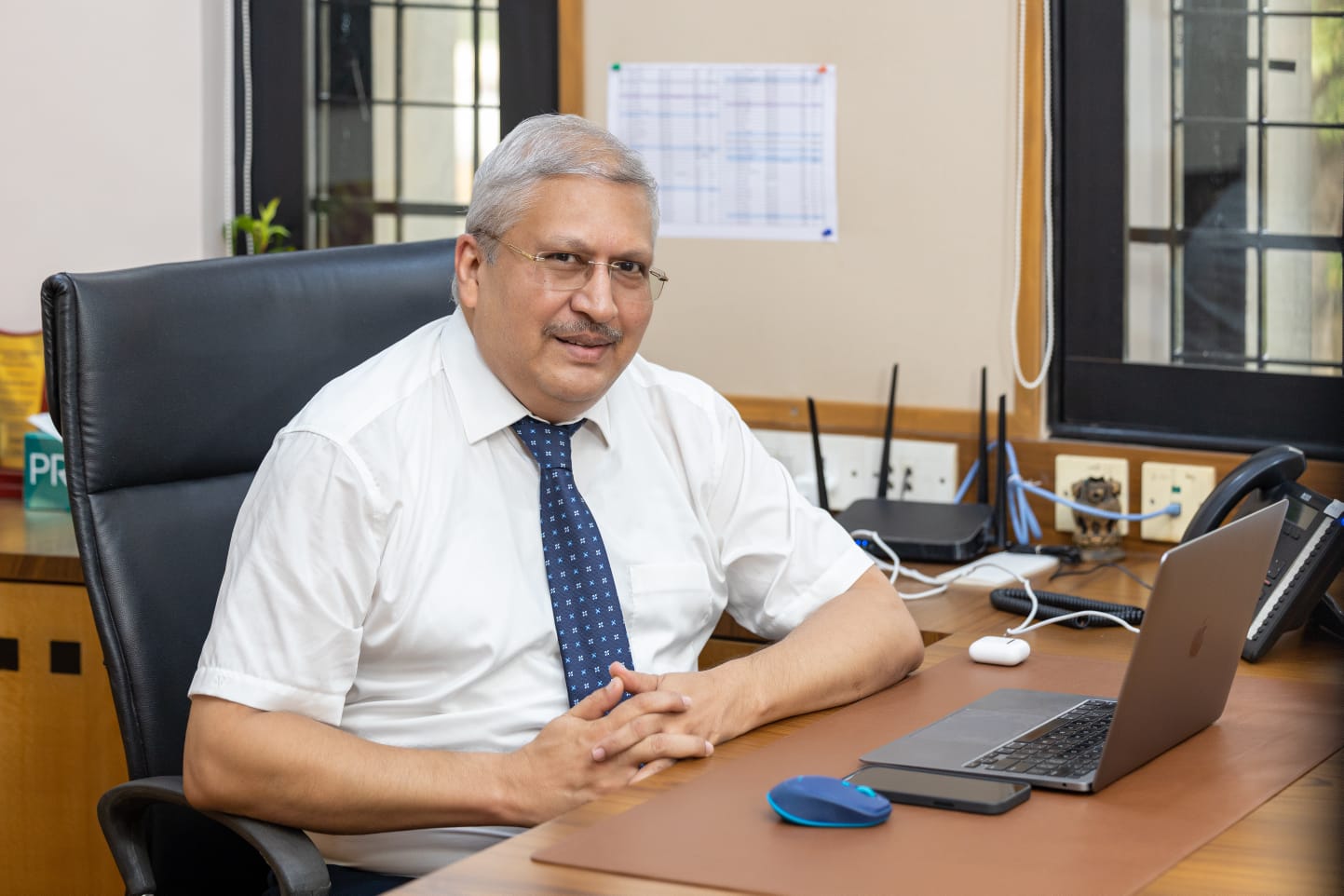Universal Health Coverage Day: Building a Strong Healthcare System in India
December 12, 2024 | Thursday | Views | By Dr. Vivek Desai, Founder & Managing Director, HOSMAC
With sustained effort and innovation, India can make healthcare a reality for everyone, ensuring a healthier, more just future for all its citizens
On December 12, the world unites to celebrate Universal Health Coverage (UHC) Day, a powerful reminder that quality healthcare is not a privilege but a fundamental right. For India, this day holds particular significance. With its immense population of 1.4 billion people and diverse challenges, the nation faces the dual task of bridging healthcare gaps and building a system that is both equitable and resilient.
Universal Health Coverage ensures that all individuals and communities receive the health services they need, ranging from prevention to palliative care, without suffering financial hardship. It is not just a lofty ambition; it is a vehicle to drive economic growth, social justice, and public well-being. As India takes bold strides towards a healthier future, its efforts underline the importance of comprehensive, inclusive, and sustainable healthcare.
State of Indian Healthcare: A Mixed Report Card
The Problem:
India’s healthcare system has made notable strides in recent years, but the road to effectively bring the entire population under its ambit is still long. A staggering 36.1% of households in the lowest wealth quintile lack health insurance, according to the National Family Health Survey (NFHS-5) highlighting a glaring disparity in access to essential care
Meanwhile, out-of-pocket healthcare expenses in India remain among the highest in the world. In India, over half (52%) of the healthcare expenditure is paid directly by individuals, with the State and Union governments covering just 35.3%. This reliance on personal spending places a heavy burden on families, pushing many into financial hardship. A 2021 NITI Aayog report titled “Health Insurance for India’s Missing Middle” highlights the severity of this issue, revealing that around 10 crore Indians are pushed into poverty each year due to healthcare costs. This financial burden places immense pressure on families, hindering their ability to seek timely medical help and exacerbating existing health disparities.
Progress Made:
India has made remarkable strides in improving healthcare access, with several government initiatives leading the charge.
- Ayushman Bharat- A Major Step Towards UHC: The government's flagship Ayushman Bharat initiative seeks to tackle healthcare inequities by providing health insurance coverage to over 55 crore individuals through the Pradhan Mantri Jan Arogya Yojana (PM-JAY). As the world’s largest government-funded health assurance scheme, it offers comprehensive, cashless hospitalization benefits for secondary and tertiary care, covering up to ₹5 lakh per family annually.
- National Health Mission (NHM): NHM has been central in improving healthcare infrastructure, particularly in rural areas, by focusing on maternal and child health, immunization, and strengthening primary healthcare services.
- Janani Shishu Suraksha Karyakram (JSSK): This initiative provides free healthcare services to pregnant women and newborns, aiming to reduce maternal and infant mortality rates. By offering free deliveries and essential care, JSSK has had a significant impact on improving maternal health outcomes across the country.
- Pradhan Mantri Swasthya Suraksha Yojana (PMSSY): PMSSY continues to expand healthcare access by establishing new AIIMS institutions and upgrading existing medical facilities in underserved regions.
- Mission Indradhanush: India’s vaccination success story, highlighted during the COVID-19 pandemic, has established a robust infrastructure for immunization. The Mission Indradhanush, which targets full immunization for children and pregnant women, aims to achieve over 90% coverage which in turn will significantly reduce mortality rates.
Moreover, there have been positive shifts in the country's healthcare spending. The share of Out-of-Pocket Expenditure (OOPE) in total health expenditure declined from 62.6% in 2014-15 to 47.1% in 2019-20, signaling a reduction in the financial burden on individuals. Simultaneously, government health expenditure as a share of India’s GDP increased from 1.13% in 2014-15 to 1.35% in 2019-20. These initiatives and trends reflect India’s growing commitment to ensuring healthcare accessibility, affordability, and equity for all its citizens.
The Path Forward:
To achieve UHC, India must adopt a forward-thinking, multi-pronged approach:
- Prioritize Preventive Care- Preventive healthcare must take center stage. Scaling up vaccination programs, health screenings, and nutrition interventions can drastically reduce disease burdens. India’s recent successes in polio eradication and anemia control among adolescent girls can serve as blueprints for future campaigns.
- Public-Private Synergy- India's private sector has the necessary resources, expertise, and infrastructure to complement public healthcare initiatives and address gaps in access. However, the reluctance of private entities to participate in government schemes often stems from the low compensation offered. To foster greater involvement, the government could allow hospitals to choose participation based on their capacity and introduce a flexible payment model, similar to the resource-based relative value scale (RBRVS) used in the U.S.
- Improving AB-PMJAY- Expanding AB-PMJAY to cover domiciliary care for pre-and post-hospitalization would be a significant step forward toward achieving UHC. Additionally, broadening the coverage to include treatments for chronic and long-term conditions is also essential. By learning from successful state schemes like Gujarat’s Ma Yojna and Telangana’s Arogyasri, AB-PMJAY can refine its operations and improve outcomes.
Universal Health Coverage (UHC) Day serves as a powerful reminder of the need for healthcare that is accessible, affordable, and equitable for all. Prioritizing preventive care, enhancing public-private partnerships, and expanding health insurance coverage are crucial steps toward achieving UHC. With sustained effort and innovation, India can make healthcare a reality for everyone, ensuring a healthier, more just future for all its citizens.
By Dr. Vivek Desai, Founder & Managing Director, HOSMAC
Asia’s leading Hospital Planning, Design and Management Consultancy









